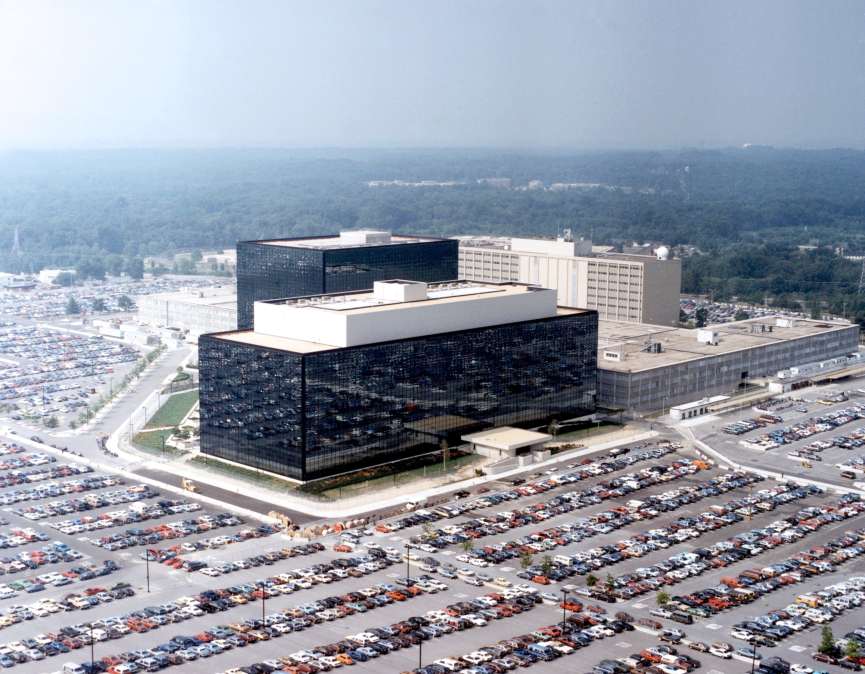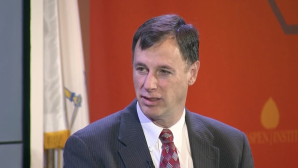NSA’s best are ‘leaving in big numbers,’ insiders say

Low morale at the National Security Agency is causing some of the agency’s most talented people to leave in favor of private sector jobs, former NSA Director Keith Alexander told a room full of journalism students, professors and cybersecurity executives Tuesday. The retired general and other insiders say a combination of economic and social factors — including negative press coverage — have played a part.
“I do hear that people are increasingly leaving in large numbers and it is a combination of things that start with [morale] and there’s now much more money on the outside,” Alexander said. “I am honestly surprised that some of these people in cyber companies make up to seven figures. That’s five times what the chairman of the Joint Chiefs of Staff makes. Right? And these are people that are 32 years old.”
“Do the math. [The NSA] has great competition,” he said.
The rate at which these cyber-tacticians are exiting public service has increased over the last several years and has gotten considerably worse over the last 12 months, multiple former NSA officials and D.C. area-based cybersecurity employers have told CyberScoop in recent weeks.
“Morale has always been an issue at NSA, with roughly 20 percent of the workforce doing 80 percent of the actual work,” a former official told CyberScoop on the condition of anonymity. “NSA is a place where people retire in place. At some point watching this behavior even for motivated people becomes highly demotivating.”
The concern held by some in the intelligence community is that this attrition will overwhelm ongoing recruitment efforts that are now beginning to hit stride.
The challenges associated with recruiting proficient cybersecurity professionals to the agency has become a consistent talking point for sitting NSA Director Adm. Mike Rogers.
During public speaking events, Rogers has often talked about the spy agency’s need to explore creative solutions to counter what is commonly referred to as “brain drain.” One example is the creation of a “tour of duty” program, which Rogers says could help those in the private sector more easily transition into classified work and then return to industry.
“What really bothers me is that the people of NSA, these folks who take paltry government salaries to protect this nation, are made to look like they are doing something wrong,” Alexander said Tuesday. “They are doing exactly what our nation has asked them to do to protect us. They are the heroes. They are the ones that deserve our praise. Not a guy who took this race to Hong Kong and to Moscow.”
Alexander, who is now a cybersecurity executive, was speaking at an event hosted by the University of Maryland’s journalism school. He observed that many Americans have come to fear the spy agency and its employees because of a basic misunderstanding concerning the NSA’s role, responsibilities and value in the scope of national security.
“You see politicians raising their phones saying ‘they’re listening to your phone calls, they’re reading your emails’ … what we did is enrage people,” Alexander said. “We gave them that impression based on the way that it was reported across all of the media.”
In large part, Alexander blamed the press for propagating an image of the NSA that causes people to believe they are being spied on at all times by the U.S. government regardless of their independent actions.
“I think it’s a whole combination of things [for poor retention rates], but part of it is the way people see them. [An NSA employee] is not someone to stand up and say what they are doing is good for our nation. You don’t hear that. And if they’re not told that, they go home to their family and friends, and then people say ‘oh, you’re the NSA, are you listening to my phone calls?’”
But sources say that some of the factors causing low morale at the agency may be more complicated than Alexander leads on and has described in past comments including those made at Tuesday’s event. For example, the NSA’s structural reorganization plan known as NSA21 — an objective pioneered by Rogers — has become a growing point of tension between different divisions within the secretive agency, sources tell CyberScoop.
The NSA’s offensive-leaning signals intelligence unit known as Tailored Access Operations, or TAO — a storied group of the government’s best hackers — and the defensive-focused team known as the information assurance directorate, or IAD, are no longer separate entities. Rather, NSA21 has installed policies that work to combine TAO and IAD into a sort of joint workforce.
The recent shift is effectively pushing two groups — those with differing skills and even culture — to work more closely together today than at any point in the NSA’s history, said historian Matthew Aid.



